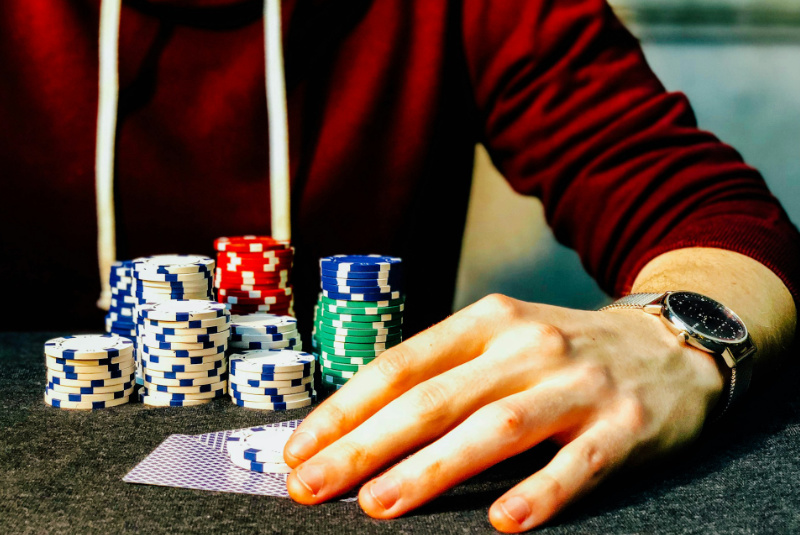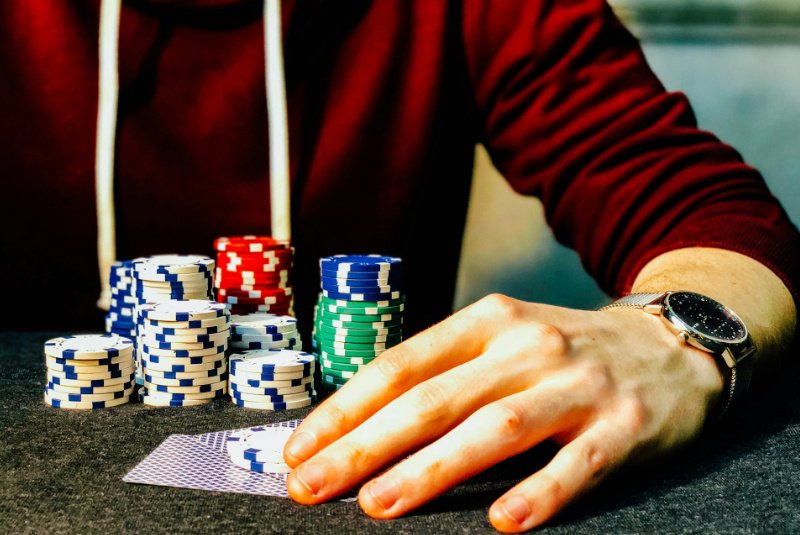How to help a gambler
It is hard to watch the consequences of a gambling addiction and feel helpless in convincing your loved one to quit. While compulsive gamblers need the support of their family and friends to overcome their struggle with gambling addiction, the decision to quit must come from them. But there are still ways to help the gambler.
Article content
How to help a gambler
It is hard to watch the consequences of a gambling addiction and feel helpless in convincing your loved one to quit. While compulsive gamblers need the support of their family and friends to overcome their struggle with gambling addiction, the decision to quit must come from them. But there are still ways to help the gambler.
Recognising a gambling addiction
The first step is recognizing that gambling has become a problem. Look out for warning signs such as time and money spent gambling, gambling at the expense of work or family responsibilities, or lying about the extent of gambling.
There are different methods to identify a gambler and to find out what stage of gambling they are in. This identification can help to initiate treatment for gambling, but it is important to understand that a gambler cannot simply stop and recovery from gambling is often a long and difficult process that he or she must choose to undergo.
Here are the main signs of gambling addiction that you should look out for.
- Inability to control, limit or stop gambling.
- Frequent thoughts of gambling, planning more gambling, or finding ways to raise money to gamble.
- Gradually increasing the amount of money wagered in order to achieve the desired thrill.
- Attempts to "win back" money lost by betting larger amounts, often leading to even greater losses.
- Accumulating debt or borrowing money frequently.
- Lying about the extent of gambling and denying gambling-related problems to family and therapists.
- Neglecting family, work or other important responsibilities because of gambling.
- Increasing tension in relationships with partner, family or friends.
- Interruption of normal activities and hobbies, focusing only on gambling-related activities.
- Relying on financial help from people close to you, which may involve manipulation or blackmail.
How to talk to a loved one about their gambling
Offer support, not judgement
Support without judgement is key if you want to help your loved one address their gambling problem. Judgement can lead to feelings of shame and isolation, which can discourage the gambler from sharing their feelings and seeking help.
A person who is struggling with a gambling addiction needs reassurance that you will always be there for them, offering support and help when they need it and not judging them for their actions.
Avoid conflict
Focus on working together, not fighting. It is more effective to work together to find solutions and set realistic goals than to use threats or manipulation, which can cause further emotional distance.
It is important to create an environment where the gambler feels safe and where they can share their thoughts and concerns without fear of negative reactions. Potential conflicts can be minimized by avoiding ultimatums and radical demands that the gambler cannot meet.
Be patient
Recovering from gambling addiction can be a long and difficult process with possible attempts to return to gambling and betting, so it is important to be prepared and supportive of your loved one throughout the process without expecting a quick and permanent recovery from addiction. Although it is sometimes difficult, family and friends need to remain positive and continue to provide support, encouragement and appreciation for any progress.
Any attempts to return to gambling should not be seen as a failure, but as part of a process of working together to develop and refine strategies to identify and manage the triggers that trigger the urge to gamble.
Do's and don'ts when a partner is addicted to gambling
What to do when a partner is addicted to gambling
- Only talk to your partner about their gambling problem and its consequences if you are calm. For the conversation to be meaningful, you can't be stressed or angry.
- Seek support, use the helpline for gamblers and their loved ones (777 477 877), or anonymous group chats where you can talk to therapists and experts on gambling addiction. You can also find support in self-help groups for gambling addicts, such as Gamblers Anonymous, where you can meet people facing the same challenges in life.
- Explain to your partner that you are seeking help because of how their gambling is affecting you and your family.
- Talk to your children about your partner's gambling problem.
- Take charge of the family finances, keeping a close eye on bank and credit statements.
- Support your loved one during treatment for gambling addiction, even though it can be a long process full of setbacks.
What not to do if your partner is addicted to gambling
- Don't lose your patience, make speeches, make threats or create ultimatums.
- Do not overlook your partner's positive qualities.
- Do not prevent your partner from participating in family life and joint activities.
- Do not expect your partner to recover from problem gambling easily and quickly. Even if he or she stops gambling, other problems related to addiction treatment may arise.
- Never pay your partner'sdebts or allow them to continue gambling in any way.
- Do not hide or deny your partner's problem from yourself or others close to you.
- Do not help them lie; instead, let them take responsibility for their behaviour.

Source.
Find activities to replace gambling
One of the causes of gambling is simply boredom and lack of excitement. That's why some people may slip into gambling, which provides them with a certain amount of adrenaline and a release after a monotonous or stressful day. Gambling offers them an escape from everyday problems or the hope that a big win will solve their deteriorating financial situation.
Help your loved ones find new ways to relax and unwind to replace gambling. Here are some ideas.
Add an adrenaline rush: Suggest an adrenaline sport that will bring new excitement into their lives and provide an adrenaline rush without the need to gamble. Rock climbing, mountain biking, water sports, wilderness adventures or hiking can add excitement to life and the experience of overcoming obstacles.
Encourage creative activities: painting, writing, music and other creative activities can be a way to express yourself and experience the excitement of exploring new ideas and the creative process. Encourage your loved one to take up a new hobby or dust off an old interest.
Enjoy time together: try to spend free time together to help them stay busy. Watch movies, try new recipes or go for walks together.
Explore new places: Discovering new places and cultures can be very exciting. Exploring wildlife, trips to the mountains or exotic destinations can offer excitement and adventure.
Relieve stress: There are many ways to relieve stress that don't involve gambling, such as meditation, exercise, massage, deep breathing and journaling. Relaxing and calming down together can strengthen your bond and release stress.
Create a plan to prevent a return to gambling
Relapse to gambling is a common problem for people trying to quit, so it's important to have a plan in place to help them resist the temptation to gamble again.
- If they ask you to meet with a counselor, go with them if you can.
- Encourage them to continue to talk openly with you.
- Talk openly about the triggers that lead to a return to gambling and loss of control so that you can manage them in the future.
- If they set a budget and ask for help to stick to it, support them.
Think about your own emotional and financial health too
Helping someone with a gambling addiction problem can be mentally challenging. It is therefore vital that the person providing support also looks after their own mental and financial health.
Take time and care for yourself
Give yourself time to relax and do activities you enjoy. Maintain your hobbies, healthy lifestyle and social contacts to help you maintain emotional balance. This is important to ensure that you are not completely consumed by the weight of your gambling problem.
Offer support but set boundaries
Provide your loved one with information about addiction and available sources of help, such as therapists or support groups. But don't take control of their finances.
It's one thing to protect the family finances, which is really important in this case, and it's another thing to let the gambler retain control where possible so they learn responsibility. Don't let him shift the financial burden to you.
Support the gambler in his efforts to recover, but don't let him go down. Be supportive, but don't let him destroy himself.
Don't be afraid to ask for help
Don't be afraid to seek help and support for yourself too, whether in the form of therapy or support groups for family and friends of people with gambling problems, to help you better manage the stress associated with this challenging situation and not feel alone in it. Make an appointment to see a therapist and share your concerns with a professional who can help you find a way out and give you motivation.
Remember, it's not your fault
Are you trying to help a loved one who is addicted to gambling but doesn't want to admit to their problem? This situation can be very emotionally challenging, so remember your own health and accept the facts.
- You cannot force anyone to admit that they have a serious gambling problem, to stop gambling or to control their gambling behaviour.
- Do not try to take control of his life. It won't work and it will only make you unhappy.
- No matter what you say or do, the only person who can do anything about a gambling addiction is the one who gambles. If she doesn't want to, there's nothing you can do to make her.
- It's important to understand that it's not the person that causes the damage, it's their behavior, which is not your fault.
Educate yourself about gambling addiction so that you can better understand what your loved one is experiencing and offer meaningful help. If you're not sure how best to help your gambler, don't be afraid to seek professional help - the fastest way is through the Gamblers and Loved Ones Helpline: 777 477 877. Or in the anonymous group chat for gamblers.
Resources
- Gambling Addiction and Problem Gambling | HelpGuide [online]. [cited 2024-04-16]. Available from: https://www.helpguide.org/articles/addictions/gambling-addiction-and-problem-gambling.htm
- Gambling - providing support | Better Health Channel [online]. [cited 2024-04-16]. Available from: https://www.betterhealth.vic.gov.au/health/healthyliving/gambling-providing-support
- How to help someone you know that has a gambling problem | Gateway Foundation [online]. [cited 16 April 2024]. Available from: https://www.gatewayfoundation.org/addiction-blog/how-to-help-someone-that-has-gambling-problem/
- How to help someone who gambles | GambleAware [online]. [cited 2024-04-16]. Available from: https://www.begambleaware.org/how-help-someone-who-gambles
- Gambling - advice for family and friends | Better Health Channel [online]. [cited 16 April 2024]. Available from: https://www.betterhealth.vic.gov.au/health/healthyliving/gambling-advice-for-family-and-friends

